It's Official: Electric Cars Have Beaten Hybrids In India!
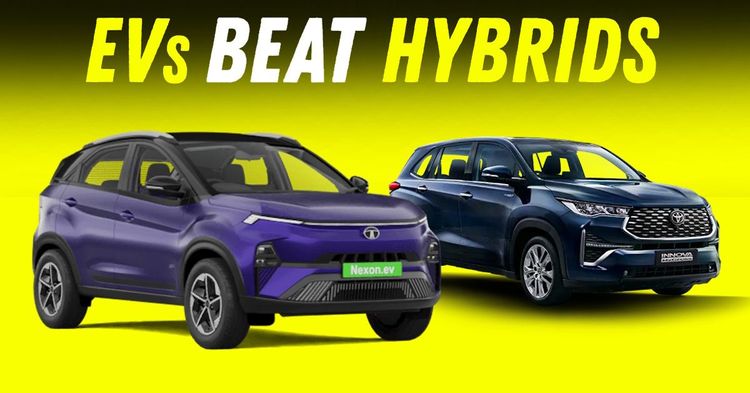

For the first time ever, electric vehicles (EVs) have surpassed hybrid vehicles in passenger car sales volume in India. According to the latest FY2025 fuel mix analysis by Autopunditz, EVs accounted for 2.3 percent of total passenger vehicle sales, overtaking hybrids, which stood at 2.2 percent. While the margin appears slim, the shift marks a pivotal moment in India’s journey towards cleaner mobility.
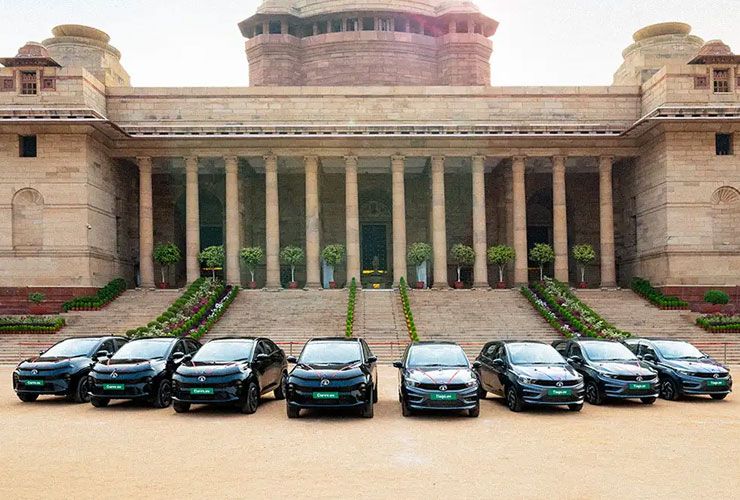
To put this into perspective, in FY2025 (April 2024 to March 2025), around 1,15,716 electric cars were sold in the country. In comparison, hybrid car sales stood at approximately 104,800 units. This represents a fundamental shift from previous years, where hybrids had consistently outpaced electric cars due to better range and a more familiar ownership experience.
This transition signals not just changing preferences, but a change in perception. Electric cars are no longer seen as niche, experimental products. With improving infrastructure, affordable entry-level options, and policy support, they are becoming the preferred cleaner alternative to petrol and diesel vehicles.
Tata Motors, India’s leading EV manufacturer, continues to dominate the electric space. The Nexon EV, Tiago EV, and Punch EV form the bulk of Tata’s EV sales, helping the company cross 60,000 units in FY2025 alone. MG Motor followed with sales of nearly 36,000+ units, while Mahindra contributed over 12,000 units.
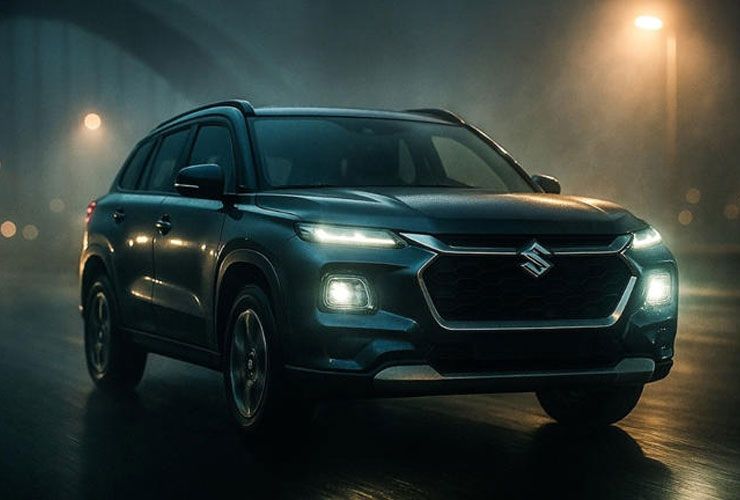
In contrast, hybrids are mainly sold by Maruti Suzuki, Toyota, and Honda. Maruti’s Grand Vitara and Toyota’s Urban Cruiser Hyryder form the core of hybrid sales in the mainstream SUV segment, while Toyota’s Innova Hycross and Camry add volume in the premium segment. Honda’s hybrid presence is limited to the City e:HEV, which remains a low-volume product.
Several factors explain this EV lead. First, policy clarity has helped. Central and state governments offer clear GST reductions (5 percent on EVs compared to 43 percent on hybrids), registration waivers, and sometimes even direct cash subsidies. These have directly lowered upfront prices and improved cost-of-ownership comparisons.
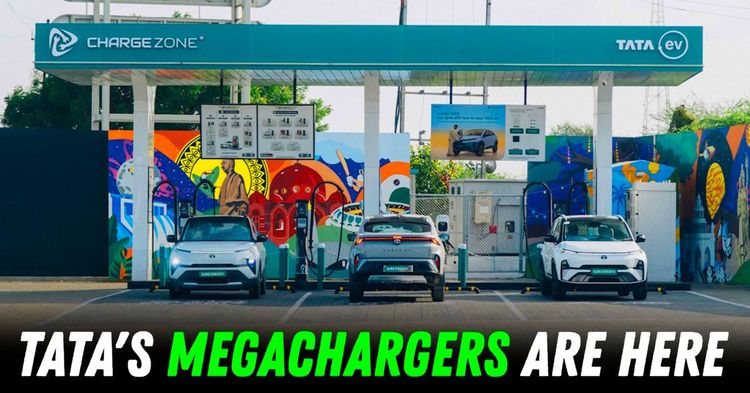
Second, charging infrastructure has expanded rapidly. There are now over 12,000 public charging points across India, with many major highways, cities, and even residential complexes offering some form of EV support. This has significantly reduced range anxiety, especially for urban and suburban users.
Third, product variety has grown. While hybrids are still limited to fewer than 10 mainstream models, EVs now come in a wide range, from ₹8 lakh city cars like the Tiago EV to ₹60 lakh performance models like the Kia EV6 and BMW i4. This availability across price points has enabled broader adoption.
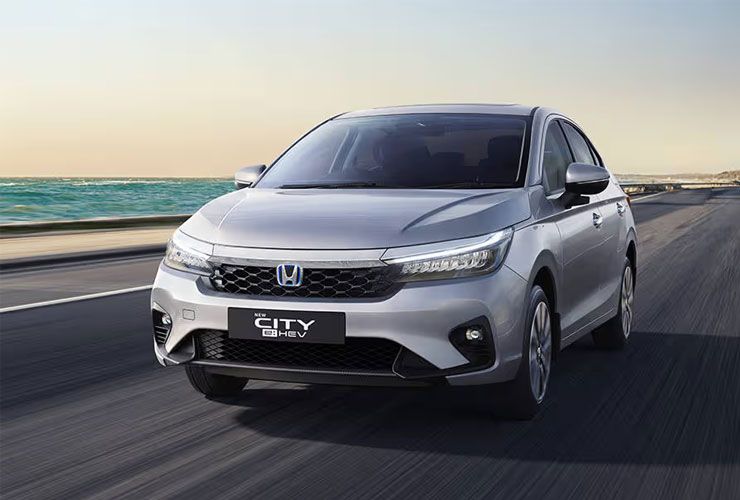
Despite being efficient and practical, hybrids suffer from an identity issue in the current landscape. They are not as incentivised as EVs, yet they do not enjoy the scale or simplicity of internal combustion engine models. Most strong hybrids are taxed similarly to petrol or diesel cars, which erases their fuel-saving advantage.
Many hybrids are also premium-priced, making them a tougher sell in a price-conscious market. Maruti and Toyota have found success in the mid-size SUV space, but beyond that, options are limited. Honda’s hybrid offerings have not gained traction, possibly due to pricing and positioning issues.
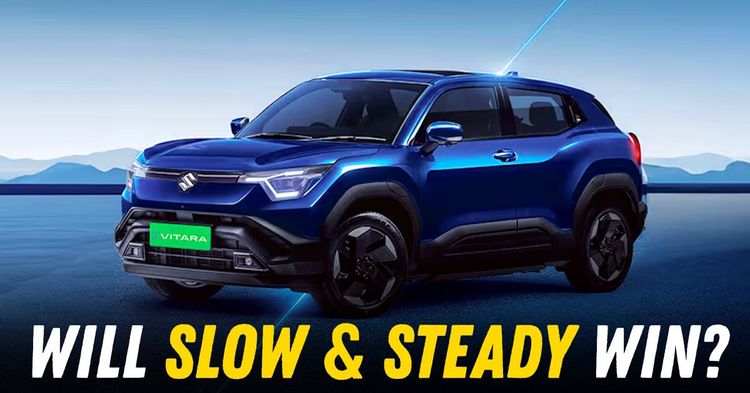
This moment in the market signals that clean mobility no longer needs to be driven by compulsion. Buyers are increasingly choosing EVs for practical reasons - lower running costs, smoother performance, and the growing support ecosystem. The perception of EVs being only for early adopters is slowly fading.
Maruti Suzuki’s first electric model, the eVitara, is set to launch in the four quarter of 2025. Hyundai, Kia, and Mahindra are preparing to scale up their EV lineups. Toyota, despite its strong hybrid push, is now reportedly reconsidering its electric strategy for India. The direction is clear, even if the pace varies between brands.
This crossover, where EVs outsold hybrids, reflects how policy support, product design, and buyer behaviour are aligning. It also shows that clean mobility can become mainstream when economics and infrastructure fall into place. For now, electric vehicles are not only holding their ground, they are accelerating into the lead.